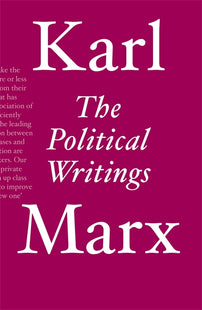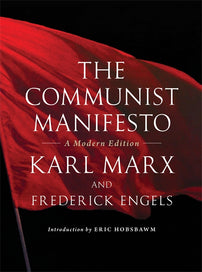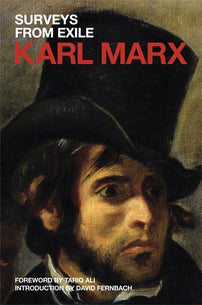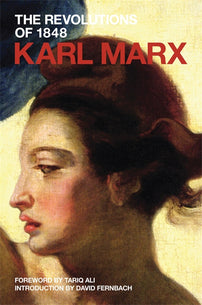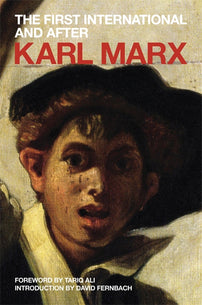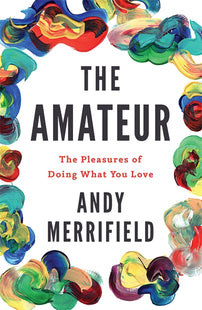Marx, Dead and Alive
In an extract from his new book, Andy Merrifield visits Marx's grave in Highgate Cemetery and argues that his thinking has never been more urgent or alive.

The Friends of Highgate Cemetery Trust is a registered charity and survives off donations and gifts from wealthy benefactors. The bulk of the workforce manning the wheelbarrows and entrance points are volunteers, both local Highgate residents, who see the cemetery as part of the neighbourhood’s heritage, and other Londoners attracted by the specialness of the place. Ian Dungavell tells me that since they began charging an entry fee in the early nineties (currently £4), finances have perked up, drawing a not-inconsiderable sum when one considers that around 100,000 visitors pass through the cemetery’s gates each year. Marx, he says, grabs the majority of grave-spotters’ attention. People come from all over the globe to walk around the cemetery, either by themselves, unaccompanied, or in guided group tours. Marx is usually high up on the list of must-sees.
After a couple minutes, we approach Marx and for an instant I hold my breath, wondering what state the great man might be in. Good news: the red paint has gone; the marble plinth looks clean and back to normal, just as I remember it from former times. What a relief! “Yes,” Ian says, “the attacker used water-based paint, which could be removed with blasts of heated water from a powerful thermal spray. It took the best part of a day for a skilled conservator to get rid of it, but there are still traces of red if you look hard.” The attack had probably been carried out in the early hours, Ian recalls, “as when I arrived first thing in the morning, after being notified of what had happened, the paint was still wet.”
Marx’s grave is quite peculiar at the cemetery because it’s actually the domain of the Marx Grave Trust, a different charitable organization. The Grave Trust owns and maintains Laurence Bradshaw’s Marx tomb, inaugurated in 1956, at a ceremony presided over by Harry Pollitt, then the British Communist Party’s General Secretary. Bradshaw, an artist and sculptor, was himself a Party member, had been since the early 1930s. His most famous work was designed “to be a monument not only of a man,” Bradshaw said, “but to a great mind and great philosopher.” He wanted the site to convey “the dynamic force of Marx’s intellect.” Which is probably why he made it so big. Since 1974, the bust and headstone have been designated a listed monument, reaching the highest Grade-1 status in 1999.
Thus the bust and headstone are the Marx Grave Trust’s responsibility, not ours, Ian says. Though, obviously, “we’ve been working together to supervise the repairs.” The marble tablet looks like it’s on the mend, too, after it had been brutally and maniacally walloped with a lump hammer. I run my hands over it, touch the lettering with my palm, only to discover that it’s a mock panel. It’s really a photo printed on the plastic board that realtors use to advertise their wares; the giveaway is that if you look closely you can see the screws holding it in place. “Ah,” Ian says, “that’s our little trick for the time being.” “The Grave Trust is still trying to decide what to do with the original tablet. One suggestion is to replace it behind reinforced glass, but,” he says, “I’m not so keen on that.”
To prevent further attacks, “some want to put the whole tomb behind high railings.” Again, says Ian, he’s against it. People can always climb over. “What are we to do? Put up barbed wire around it? It’s a cemetery, and that sort of thing seems out of place, even distasteful, here. To convert the place into a prison seems wrong to me,” he maintains. “I think what shocked people most about the vandalism was its ferocity, that it was a terrible violation. Whatever your views about Marx, cemeteries are sites of peace, reflection and remembrance, not places of aggression and violence.” After a brief pause he continues, “It’s really interesting, isn’t it, how certain people would want to go to such lengths to smash Marx. What is it about the man and his ideas that seem to threaten people so much after all these years? Do they really think they’re going to destroy the ideas by destroying the grave? It’s interesting how people feel so afraid of Marx. Is there any other intellectual throughout history that is like that?”
Ian has a PhD in architectural history and is keen to point out some of the fine-grain features of Bradshaw’s original design. Marx’s plinth is Cornish granite, but it is only a covering, he says. Inside is brick. “It would have been better if the entire structure were solid granite. Yet in the mid-1950s it was clearly too costly for the British Communist Party who paid for it.” If you look closely you can see traces of previous attacks, like the National Front bomb from the 1970s. One time, in the 1960s, Ian says somebody tied a rope around Marx’s massive bronze bust and toppled it. The bronze head was found on the ground. It was put back, he says, “and is now firmly attached to the plinth, thank goodness!” The 1960s, apparently, was a dismal period for the cemetery, when it fell on financially hard times. The owner then was a pretty horrible property developer, Ian tells me, who wanted to sell Marx to the Soviets, and ship his whole tomb and remains to Moscow. But the Russians, with their own problems dealing with embalmed Lenin, weren’t interested.
The two-meter-square patch immediately in front of the grave is now paved over with black granite. “That was paid for by the Chinese government,” Ian says. “We wrote to them asking for a contribution and they obliged by financing the whole amount.” In fact, he confirms that the Chinese are among the most frequent visitors to Marx’s grave. Just yesterday, Ian says, “around 3:50 pm, ten minutes before the cemetery was due to close, a minibus rolls up full of wealthy Chinese businessmen, dressed immaculately in suits, wanting to see Marx. This happens quite often, Chinese businessmen coming to see Marx. On these occasions, I feel a responsibility for showing them around personally, even if it is after hours. Marx continues to fascinate the Chinese.”
It’s ironic, I think to myself, how for decades the Chinese people were force-fed Marx when their peasant society could hardly digest him. Marx’s thought, outlining the inner contradictions and human misery stemming from modern industrial capitalism, was poorly suited to agrarian China. Only now, with China’s massive and dramatic industrial development, do they seem ready to really get Marx. Doubtless, these businessmen know it. With the Chinese state combining the worst features of capitalism and communism, now its citizens can begin to see how Marx might be their future guide. He’s somebody who can lead them into their modern-day, twenty-first-century industrial contradictions, together with the class antagonisms that’ll likely reveal themselves in the years ahead. China’s engagement with Marx—dead and alive—may only just be beginning.
Standing in front of Marx with Ian Dungavell, I remember "High Hopes", Mike Leigh’s 1988 tragicomedy, the British director’s take on the fear and misery of Thatcher’s third term. It had been a long time since he had seen it, Ian says. In one memorable scene, Leigh’s hero Cyril and heroine Shirley jump on their motorbike to pay homage to old Marx here at Highgate. The duo is all out of sync with the value system of their age, with the Iron Lady’s greedy individualism. They’re happily shacked up in a condemned little council flat behind King’s Cross, two socialists a bit lost in the free market world, wondering what’s left, what’s to be done to survive. Cynicism and despair almost overwhelm Cyril; but Leigh’s humor, and Shirley’s love, keep him fresh, keep his hopes high. So off they go, up to Highgate Cemetery, Cyril and Shirley, on a Marx pilgrimage; and like Ian Dungavell and me today, they stand before Marx, confronted by that huge bust and colossal brain.
“He’s a bit big, in’ee?” says Shirley. “He was a giant,” says Cyril. “No, I mean ’is head,” Shirley qualifies. “He’s all right,” says Cyril. “What he done was he wrote down the truth. People was being exploited. The Industrial Revolution—they was forced off the land into the factories. There weren’t no working class before then. Marx set down a program for change.” “I wish I’d brought some flowers now,” says Shirley. “Don’t matter, does it, flowers,” Cyril quips. “What d’ya mean, it don’t matter?” Shirley asks, surprised. “He’s dead,” Cyril says. “Well, you’re goin’ on about ’im,” says Shirley. “I’m talking about his ideas,” Cyril says. “I know,” says Shirley. Then she reads the inscription on the plinth: Philosophers have only interpreted the world in various ways; the point, however, is to change it. “There you are.”
Shirley wanders off, inspects the other graves and the cemetery’s wild flowers. Cyril stays put, ponders over Marx’s quote. He says nothing, just gazes up at the bust. He’s so close to Marx that he’s almost looking under the revolutionary’s massive chin, eyeing his bearded profile from below, his forehead and protruding brow, his huge bushy eyebrows around those intense eyes staring out. Cyril stares, too, but in wonderment, in some strange personal cosmic reverie. Mike Leigh gives us a long, quiet frame, a sequence not risked very often in modern action-obsessed commercial cinema. The camera lingers on Marx. Nothing happens. All we hear is the gentle breeze, the birds, a distant aircraft, and Cyril’s inner thoughts, his doubts, his admiration.
We listen to Cyril’s brain ticking. Marx’s inanimate bronze seems to be listening, too, cogitating with Cyril, alive among the cemetery’s dead. Suddenly, Cyril jolts out of his reverie, and blurts aloud: “The thing is, change what? It’s a different world now, innit? By the year 2000, there’ll be 36 TV stations, 24 hours a day, telling you what to think.” Then another pause, another quiet reflection; then, out of the blue, almost arguing with himself: “Pissing in the wind, innit.” It’s the “innit” that suggests Cyril isn’t quite sure, that maybe following Marx mightn’t really be pissing in the wind, and that even pissing in the wind is to relieve oneself.
Parting with Ian Dungavell, I thank him, we shake hands, and he’s gone, off up the lane back to work, leaving me alone with Marx and my camera. I took a photo, from Cyril’s perspective. Then I think: Marx knew how capitalist society was a sorcerer that mesmerizes people, that has us piss in the wind, believe in the crap it feeds us. In the Manifesto, he said, “Modern bourgeois society” had even mesmerized itself, that its ruling class “is no longer able to control the powers of the nether world they’ve summoned up with their spells.” This is especially worrying now, because never has modern bourgeois society been so full of conjuring tricks as today, carried out by joker politicians who have lost all control of what they’re doing, of what they ought to be doing; they long ago lost contact with ordinary people’s everyday reality. But that doesn’t seem to bother them, nor bother the people they govern. They have cast spells the likes of which we’ve never seen before. They have become sorcerers of collusions and conspiracies, of tricks and deceptions, of fake news and endless, unbelievable sleights of the economic and political hand. Bizarrely, many people seem to want to believe these sleights of hand, this smoke and mirrors, this visceral wand-waving that summons up the emotions, the unthinking senses. The greatest spell they’ve cast is that we can’t see how they’ve turned us into toads.
[book-strip index="1" style="display"]IT’S TIME FOR ME TO LEAVE MARX NOW, leave the dead Marx at the cemetery. I walk up the lane that Ian took a few minutes earlier, carrying Marx inside me, his living spirit, those ideas that threaten reactionaries so much. Perhaps this spirit can be the kind of counter-magic we need more than ever, something that can transform us back into thinking human beings again. Maybe Marx can give us the critical faculties we need nowadays, to get an analytical grip on the current impasse. I stroll back to the entrance gate. My mind wanders.
Our life is afflicted with the insomnia plague that Gabriel García Márquez outlines in One Hundred Years of Solitude. When the insomnia plague hits Macondo, the sick person no longer sleeps a wink. At first, the townsfolk aren’t alarmed. On the contrary, they’re happy in their hallucinogenic state: there’s much work to do building up the new town and barely enough time to do it; so much the better, then, if they don’t sleep.
But soon people traipse around busying themselves with all manner of inane activities, fidgeting about and telling each other the same old jokes over and over. After a while, the most fearsome aspect of the insomnia plague strikes: memory loss. People forget the past and begin to lack any awareness of the present, of their own being, until they sink into “a kind of idiocy,” Márquez says. Meantime, the person no longer dreams, loses the capacity to imagine a future. They enter instead into an eternal present, a senseless state that sounds a lot like our condition today. So-called “screen-time insomnia” does an effective job of numbing us even more. Excessive screen-time, especially from smartphones in bed, affects our brain cells, creating attention span deficiencies and prompting sleeplessness. It’s particularly apparent among teenagers. Yet adults seem equally mesmerized by the blue light, muddling our brains as to whether it is actually day or night time. We, too, thereafter, sink into a kind of collective idiocy that makes us easily manipulable.
And yet, in One Hundred Years of Solitude, Márquez’s hero, the radical liberal freedom fighter, Colonel Aureliano Buendía, conceives a novel method to protect himself against memory loss. As soon as he begins having trouble remembering objects’ names, he decides to mark each one with labels. All he has to do is read the inscription in order to identify them. With an ink brush he marks everything with its name. Then he realizes that one day people might also forget not only the names of things, but where they came from, and what use they have. Thus he sticks signs on things, like on a cow, saying: “This is a cow. She must be milked every morning so that she will produce milk, and milk must be boiled in order to be mixed with coffee to make coffee and milk.” So it went, to prevent reality slipping away. But the system demanded so much vigilance and moral strength that many succumbed to the spell of an absurd reality.
As our reality seems to slip evermore into absurdity, Marx can help us put labels back on things, help us not forget the value of written letters. He can ensure we remember where things come from, who made them, and how they function in society. The Marxist label recalls that a thing is really a social relation, a social process that requires deeper and wider understanding. Things get enveloped in mist, and we need a thought procedure that can help us grope our way through the haze. Marx’s ideas can keep our brains and our bodies alert. They can put our individual lives not only in a relative, collective perspective, but also in some sort of historical continuum. Who we are hinges on who we once were and who we might become in the future. Past and future are internalized in the present, and the present is always open-ended and fluid, never fixed or forever given, written in stone. Nor even cast solid in bronze.
That’s the dead Marx. The living Marx can help us stay vigilant. He can ward off magic spells, repel the incantations of demagogic magicians. Marx’s thought can act as a revelatory power, alerting us to anything phony and false, to hollow promises and lurid conspiracies. For the Marx who is alive, as Cyril says, “It don’t matter, does it, about flowers.” “Well, you’re goin’ on about ’im,” says Shirley, and it’s true, I have been going on about him in this book. “I’m talking about his ideas,” Cyril says, helping me along. “I know,” says Shirley. I can hear Shirley in my head now, reading the inscription on the grave’s plinth: Philosophers have only interpreted the world in various ways; the point, however, is to change it. “There you are,” she says afterward. There you are indeed.
[book-strip index="2" style="buy"]In Marx, Dead and Alive—a book that begins and ends beside Marx’s recently violated London gravesite—Merrifield makes a spirited case for a critical thinker who can still offer people a route toward personal and social authenticity. In an age spawning Donald Trump and Boris Johnson, our society has never before been governed by so many conjuring tricks, with collusions and conspiracies, fake news and endless sleights of the economic and political hand. And yet, bolstering his argument with fascinating examples of literature and history, from Shakespeare and Beckett, to the Luddites and the Black Panthers, Merrifield contends that as our modern lives become ever more mist-enveloped, the works of Marx can help us penetrate the fog.
Andy Merrifield is a writer and independent scholar. His books include Metromarxism, Dialectical Urbanism, The New Urban Question, and Magical Marxism. He has also published three intellectual biographies, of Henri Lefebvre, Guy Debord, and John Berger, a popular existential travelogue, The Wisdom of Donkeys, a manifesto for liberated living, The Amateur, together with an homage to cities and love, inspired by Raymond Carver’s short stories, called What We Talk About When We Talk About Cities (and Love).

